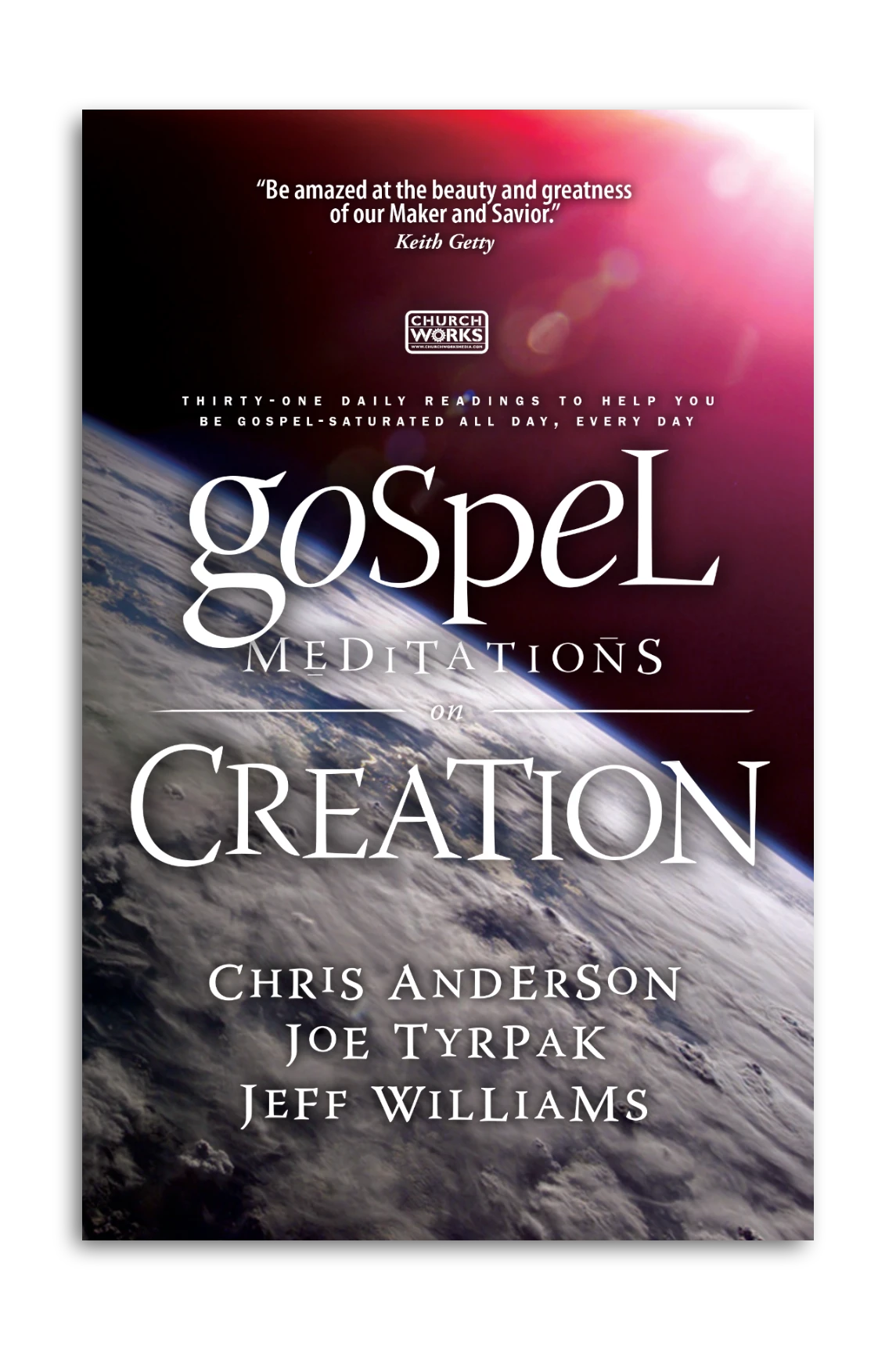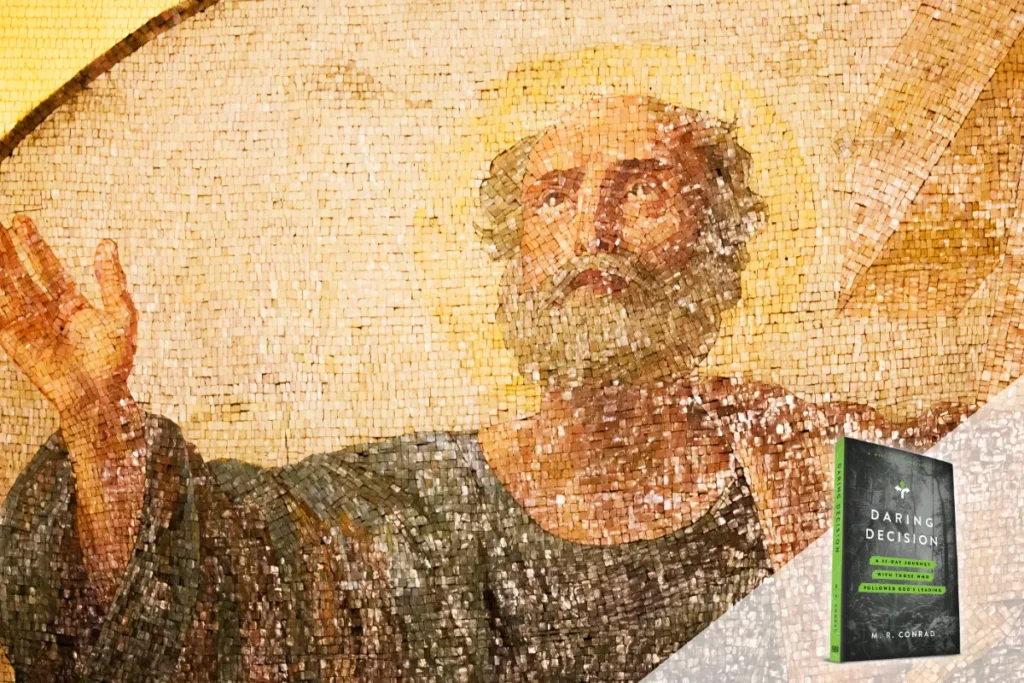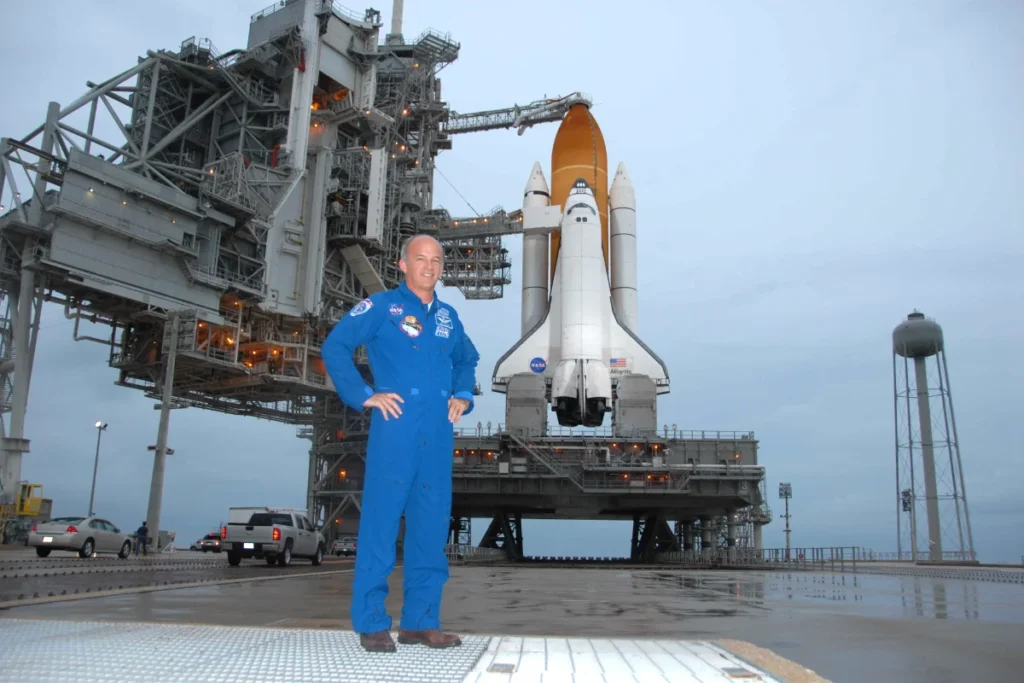
Blog
Why Does Life Feel Meaningless?

This post by Joe Tyrpak comes from Gospel Meditations on Creation (Day 19: “Creation’s Monotony”).
“The sun rises, and the sun goes down, and hastens to the place where it rises.” (Ecclesiastes 1:4)
Creation certainly fills us with wonder and awe. But the Scriptures describe another, deeply painful effect that observing creation has. The daily experience of creation’s rhythms, this side of the Fall, also fills us with a devastating sense of hollowness—a sense that our lives are pointless. Solomon describes this difficult experience in his compelling introduction to Ecclesiastes.
In Ecclesiastes 1:2, Solomon states his main point for the book: “Vanity of vanities! Vanity of vanities! All is vanity.” He means something like this: “I can’t express how utterly pointless all the activity in life seems!” Then he essentially asks, “Have you ever stopped to consider what people actually achieve by all the toilsome effort they expend throughout life? What a waste!” (v. 3). That’s a painful question to consider!
He answers with illustrations from creation. The earth keeps spinning while generations come and go (v. 4). The sun keeps on rising and setting, and the seasons keep on changing, and the water keeps on cycling (vv. 5–7). Notice how creation’s rhythms disturb Solomon (v. 8). It seems that the activity of every human, every generation, and every civilization is utterly pointless—“Ol’ Man River, He jes’ keeps rolling along” (Show Boat).
Solomon’s “painful” teaching is intended to lead us to wisdom.
Reader, personalize this realization right now. Consider that, a hundred years from now, you’ll be forgotten. The sun will still be shining and the weather will still be changing, but all your work will be forgotten, and few people (if any) will even remember your first name. How does that consideration make you feel?
Solomon intends it to be painful—to “goad” you (Ecclesiastes 12:11). But when you realize that your life won’t make a big difference and that you can’t find meaning in “leaving a legacy,” you’re actually right on the cusp of living wisely!
God gave us this book of the Bible to teach us the point of human life—what is and is not worth living for. Solomon’s clearest instruction about the point of life comes in the book’s grand conclusion (Ecclesiastes 12:13–14), where he explains that only a relationship with God gives satisfying purpose to life.
Life is not about how much we accomplish or accumulate. It’s about living for God. Our lives have significance only if He knows us, if we do our work for Him, and if we thank Him for the daily life He gives to us. God doesn’t just help us find meaning in life; He is the meaning of life. “Fear God and keep His commandments, for this is man’s all” (Ecclesiastes 12:13 NKJV, italics mine). A life that seeks significance outside of a relationship with God will, upon prolonged reflection, seem pointless.
Only a relationship with God gives satisfying purpose to life.
So, how can any human “fear God and keep His commandments”? And, as verse 14 continues, how can anyone stand before God when He brings “every deed into judgment”? From cover to cover, the Bible answers those questions: Through faith in God’s Messiah. Jesus was punished for us, God’s enemies, so that everyone who trusts Him can be at peace with God (Isaiah 53).
Jesus’ shed blood can cleanse from guilt everyone who turns to Him. He can actually credit His perfect record of law-keeping to all who are united to Him. So it’s only through Jesus that we will be able to stand “faultless” in God’s holy presence “with exceeding joy” (Jude 24 KJV). Let the painful consideration of creation’s monotony and your transience drive you to Jesus. Don’t seek meaning for your life in anything else.
Let the gospel reconcile you to God Who alone gives life meaning.
Explore the whole book!
Creation should move us to worship—especially when we consider that the mighty Creator stooped to become our merciful Savior. Take a 31-day journey of wonder, marveling at God’s power and goodness. Series authors Chris Anderson and Joe Tyrpak are joined by co-author Jeff Williams, a devout Christian and retired NASA astronaut who spent 534 days aboard the International Space Station—an American record when he accomplished it. To the surprise of many in the scientific community, Jeff believes that the Bible is inerrant, and he takes the creation record literally. His contribution to this project makes it a must-read!













